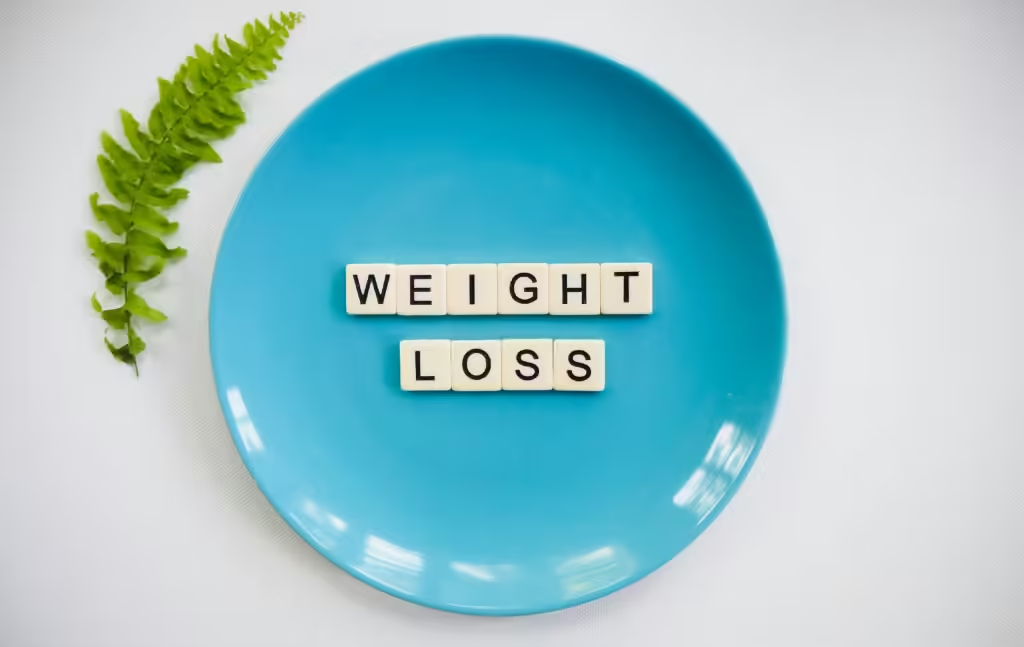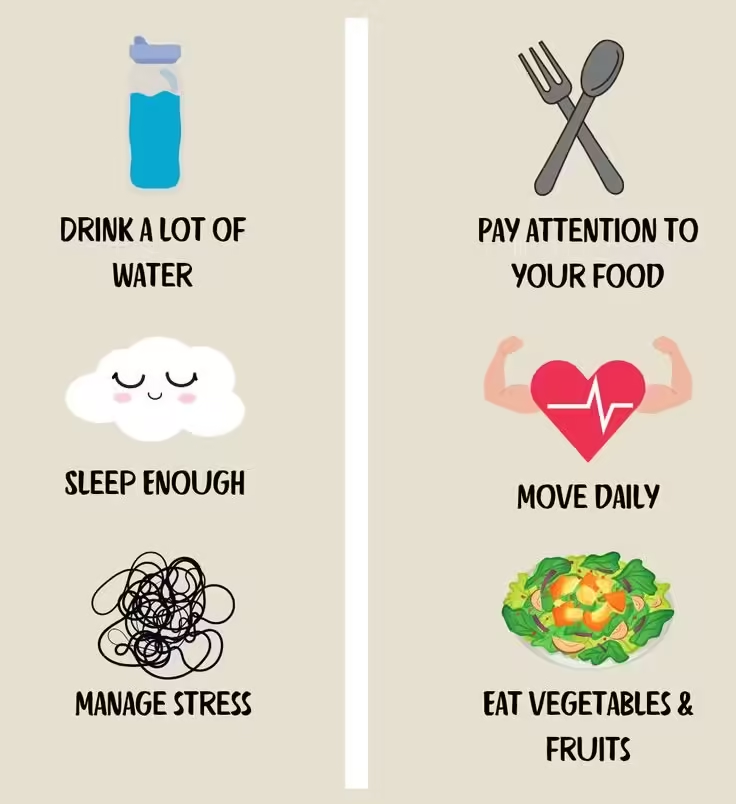Demystifying Weight Loss: A Beginner’s Guide in 2024
The desire to weight loss is a common one. Whether it’s driven by a health goal, a yearning for more energy, or simply wanting to feel more comfortable in your clothes, the path towards weight loss can feel overwhelming, especially for beginners. This comprehensive guide aims to shed light on the core concepts, bust common myths, and equip you with actionable tips to embark on a healthy and sustainable weight loss journey.

Understanding Weight Loss: It’s About Calories
At its core, weight loss boils down to simple math: calories in vs. calories out. When you consume more calories than your body burns, you gain weight. The opposite leads to weight loss. The National Institutes of Health (NIH) estimates the average adult male needs around 2,500 calories per day, while females need closer to 2,000 . However, these are just general benchmarks. Individual calorie needs depend on factors like age, sex, activity level, and body composition.
Let’s illustrate this with an example. Imagine Sarah, a 30-year-old woman with a desk job, consumes 2,200 calories daily, but her body only burns 2,000 calories through daily activities and metabolism. In this case, the extra 200 calories are stored as fat, leading to weight gain over time. To lose weight, Sarah would need to either reduce her calorie intake to 1,800 (creating a calorie deficit) or increase her daily expenditure by burning more calories through exercise, aiming for a net loss of 500 calories per day for a healthy weight loss rate of 1-2 pounds per week .
Benefits of Weight Loss: More Than Just the Number on the Scale
While achieving a desired weight is a common motivator, the benefits of weight loss extend far beyond a smaller dress size. Here’s what you can expect:

- Improved health: Losing weight can significantly reduce the risk of chronic conditions like type 2 diabetes, heart disease, and certain cancers .
- Increased energy levels: By shedding excess weight, you put less strain on your body, leading to improved stamina and overall energy levels.
- Enhanced mobility: Weight loss can significantly improve joint health and flexibility, making everyday activities easier and more enjoyable.
- Boosted confidence: Reaching weight loss goals can have a positive impact on self-esteem and overall well-being.
Drawbacks and Considerations on the Road to Weight Loss
It’s important to approach weight loss with a realistic and sustainable mindset. Here are some potential drawbacks and points to consider:
- Slow and steady wins the race: Aiming for rapid weight loss can be counterproductive and unsustainable. Focus on gradual, healthy changes for long-term success.
- Diet vs. Lifestyle Change: Crash diets or restrictive eating plans might lead to short-term results but are often difficult to maintain long-term. Aim for sustainable dietary changes that become a part of your lifestyle.
- The importance of consulting a doctor: Before starting any weight loss journey, especially if you have underlying health conditions, consult your doctor to develop a safe and personalized plan.
- Mindset matters: Weight loss is not just about physical changes; it’s also about mental well-being. Be patient, celebrate small victories, and focus on developing a healthy relationship with food and exercise.
Taking Action: Getting Started with Weight Loss
Ready to start your weight loss journey? Here are some actionable tips to get you going:

- Track your calories: Numerous apps and online tools can help you track your calorie intake and expenditure. This awareness is crucial in creating a calorie deficit.
- Focus on whole foods: Fill your plate with fruits, vegetables, whole grains, and lean protein sources. These foods are nutrient-rich and naturally filling, keeping you satisfied for longer.
- Portion control is key: Use smaller plates or bowls to visually reduce portion sizes and prevent overeating.
- Stay hydrated: Water is essential for overall health and can help curb cravings. Aim for at least eight glasses per day.
- Find an activity you enjoy: Exercise is crucial for weight loss. Explore different activities like walking, swimming, dancing, or team sports to find something you enjoy and can stick with. Start slow and gradually increase intensity and duration over time.
- Don’t deprive yourself: Occasional treats are okay! Aim for moderation and balance over complete restriction. A healthy relationship with food is key for long-term success.
Remember: Weight loss is a personal journey. Don’t compare yourself to others and celebrate your progress, no matter how small.
Call To Action:
This guide is just the beginning of your weight loss journey. There’s a wealth of information available online and from qualified professionals. Consider consulting a qualified professional is a good idea if you are unsure about safe levels of exercise [1]. Especially for people with diabetes [1].
In addition to consulting a doctor, here are some other resources that you might find helpful:
- Registered dietitians: These are healthcare professionals who can help you create a personalized meal plan that meets your nutritional needs and weight loss goals.
- Certified personal trainers: A certified personal trainer can design a safe and effective exercise program tailored to your fitness level and goals.
- Online resources: Numerous reputable websites and apps offer evidence-based information on weight loss, healthy eating, and exercise. Look for resources from trusted organizations like the American Heart Association or the National Institutes of Health.
Remember, weight loss is a journey, and there will be ups and downs along the way. By surrounding yourself with qualified professionals and reliable resources, you can increase your chances of success and achieve your weight loss goals in a healthy and sustainable way.
Debunking Common Weight Loss Myths: Fact vs. Fiction
The world of weight loss is full of conflicting advice and quick-fix solutions. Here, we’ll clear the air on some of the most common myths so you can focus on strategies that truly work:
Myth 1: Carbs are the enemy.
Fact: Carbohydrates are an essential source of energy for your body. The key is to choose complex carbs like whole grains, fruits, and vegetables over refined carbs like white bread and sugary treats. Complex carbs provide sustained energy and essential nutrients, while refined carbs can lead to blood sugar spikes and crashes, contributing to cravings and weight gain.
Myth 2: Eating late at night makes you gain weight.
Fact: While timing your meals can influence your sleep patterns and hunger hormones to a certain extent, it’s not the sole factor in weight gain. What matters most is your overall calorie intake throughout the day. If you stay within your calorie deficit, even a late-night snack won’t sabotage your weight loss goals. However, mindful eating practices are still important. Choose healthy snacks over sugary options before bed to avoid disrupting your sleep.
Myth 3: One “cheat day” ruins everything.
Fact: We all have cravings and social events that might involve indulging a little. Don’t beat yourself up! One occasional cheat day won’t derail your progress. The key is to get back on track with your healthy eating plan the next day. Remember, weight loss is a marathon, not a sprint. Focus on consistency over perfection.
Myth 4: Weight loss plateaus mean you’re failing.
Fact: Plateaus are a normal part of the weight loss journey. Your body adapts to changes in calorie intake and exercise routines, making it temporarily harder to lose weight. Don’t get discouraged! Adjust your plan slightly by reducing calories further or increasing exercise intensity. Consulting a registered dietitian or certified personal trainer can help you adjust your approach to overcome plateaus.
Myth 5: Spot reduction is possible.
Fact: Unfortunately, you can’t target fat loss in specific areas. Exercise helps you burn calories overall, but it won’t necessarily sculpt a specific body part. However, strength training can help build muscle tone, which can give the appearance of a more sculpted physique.
By understanding these common myths, you can make informed decisions and avoid getting discouraged on your weight loss journey. Remember, focus on building healthy habits and a sustainable lifestyle for long-term success.
Share this content:






Post Comment